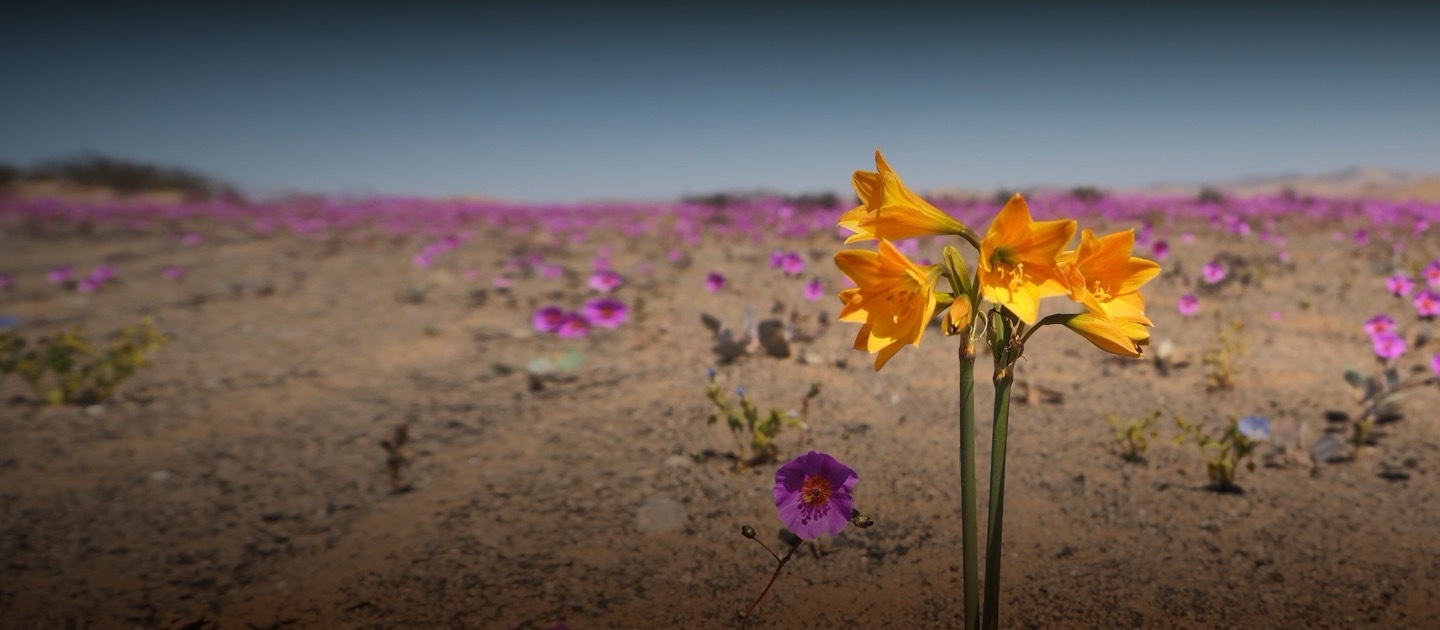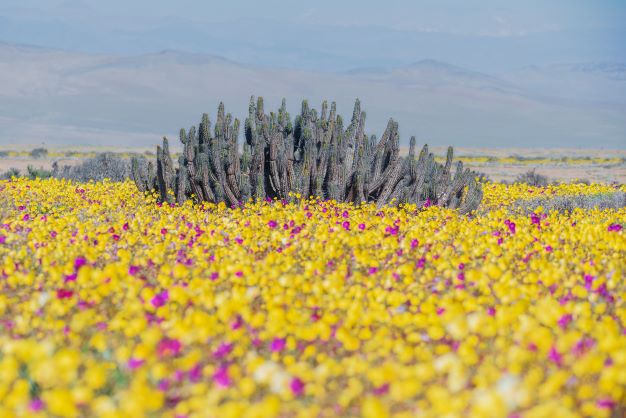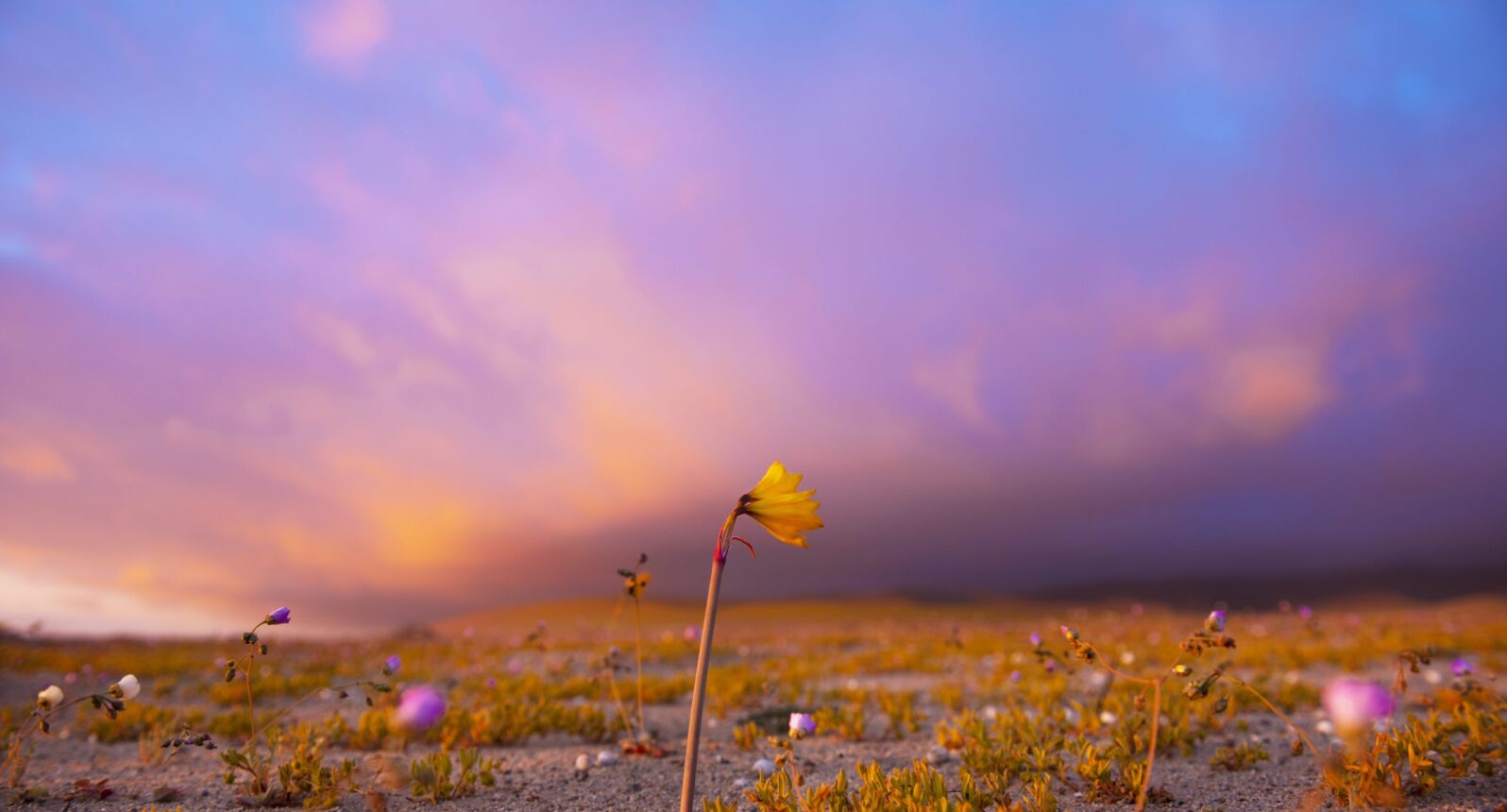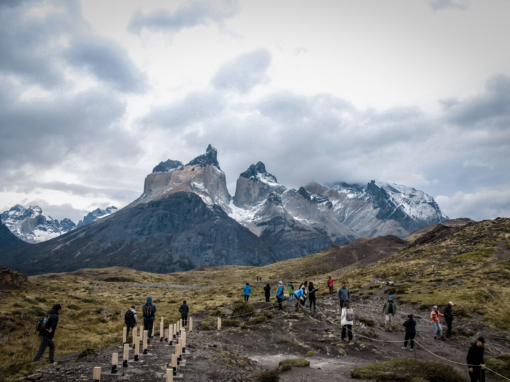In the middle of the driest desert in the world, where rain is almost nonexistent and the landscape is painted in shades of ochre and gray, something extraordinary happens: the ground suddenly bursts into bloom. It’s not a dream—it’s the Blooming Desert, a natural phenomenon that every few years transforms northern Chile into a living, multicolored canvas.
For 2025, it’s official: nature has given the green light, thanks to the winter rains in the Atacama Region.

Rains that Bring Life
The magic begins underground. For years, thousands of seeds remain hidden in the sand, waiting for the right conditions. When enough rain falls—this year particularly in Huasco Province and along the coastal areas—the desert awakens.
Experts from CONAF (Chile’s National Forest Corporation) have already confirmed that the flowering season will take place between September and November, with its peak in October.
Unique Flowers of Northern Chile
More than 200 species will bloom almost simultaneously. Some of the most iconic are the añañuca lilies, the delicate pata de guanaco, and the vibrant garra de león. Many are endemic species, found nowhere else on Earth.
Seeing them together is like walking across a canvas painted in soft pinks, purples, whites, and yellows.

Routes to Experience the Bloom
Travelers eager to witness this natural wonder can explore several spots across the Atacama Region. Among the most recommended are:
- Llanos de Challe National Park, famous for its seaside flower fields.
- Chañaral de Aceituno, where the desert meets rich marine life.
- Totoral, a classic stop in the province of Copiapó.
Protecting a Fragile Wonder
The Blooming Desert is delicate. Every step off the path or every flower picked means losing a piece of this miracle. If you visit, keep in mind:
- Stay on marked trails.
- Do not pick flowers or collect seeds.
- Leave pets at home.
- Support local guides and registered tourism services.
A Reminder to Pause
The Blooming Desert doesn’t happen every year. And when it does, it lasts only a short while. It’s a reminder that even in the harshest landscapes, beauty can suddenly emerge.
In 2025, Chile will once again gift the world with an unforgettable sight: the driest desert on Earth transformed into a vibrant, living garden.



